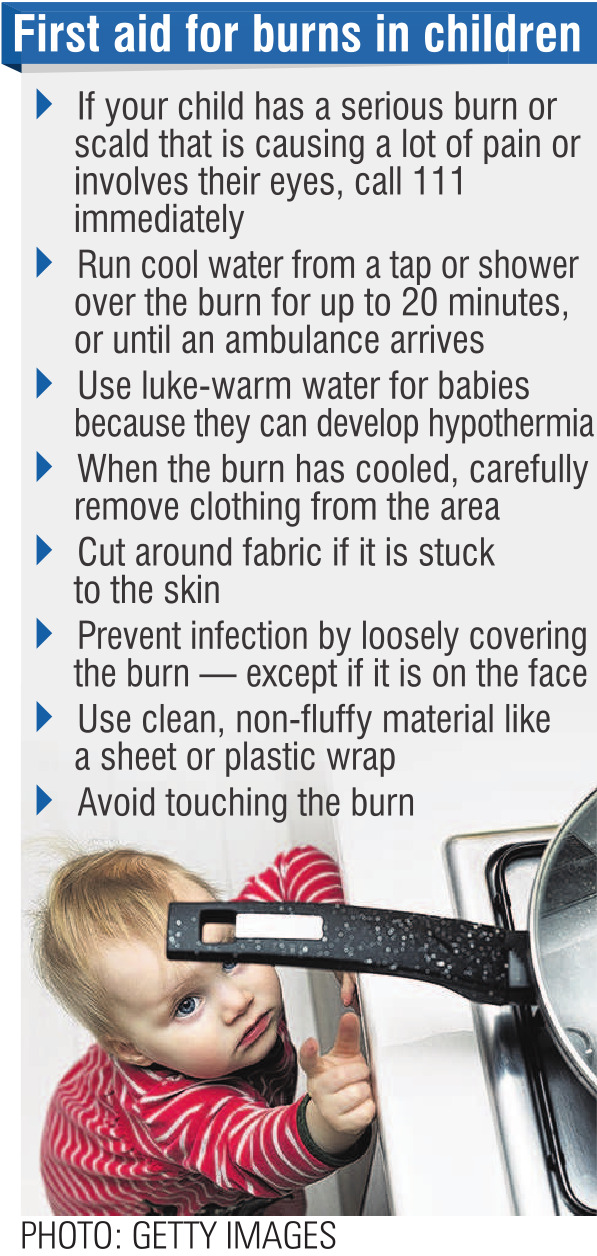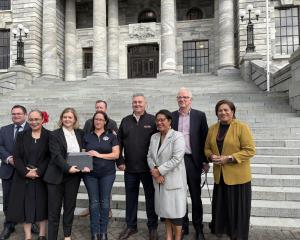
During her paediatric training, Dr Tish Patel said one of her roles was to meet every child under the age of 2 who had been admitted to hospital with an injury.
"Doing that role, it became very obvious that I was seeing many more children than we would expect with burn injuries, and that very few of them had received first aid prior to coming into hospital.
"The majority of burns in under-5-year-olds were scalds, often caused by hot water, usually from pulling a cup of tea or a kettle off the table or the bench.
"But there were also contact burns from touching fireplaces, touching fronts of ovens — things like that are also very common."
Dr Patel found many of the parents who brought their children to hospital had not given any first aid before arriving.
"Some others had started first aid, but not completed it entirely.
"And we know that if you complete proper gold-standard first aid that that decreases your risk of infection.
"It also decreases the severity of the burn overall, which means that they’re less likely to need surgery — like skin grafts and debridements — and they’re less likely to have ongoing scarring.
"They’ll just generally have better outcomes," Dr Patel said.

"So the gold-standard first aid for burn injuries is to run the injury under cool — not cold — running water for at least 20 minutes, or until an ambulance arrives and they’ll tell you what to do after that point."
Dr Patel is now investigating ways to improve knowledge about first aid for childhood burn injuries, as part of her master’s of public health degree at the University of Otago.
She is calling for people aged 18 and over to share their witness accounts of an accidental burn injury in a child aged 0-4 years, and to reflect on their experiences and the actions taken following the burn injury.
She said there was very little research, both from New Zealand and internationally, that explored carers’ actions immediately after accidental burn injuries, and why people might or might not perform first aid.
"By conducting this research, we hope to be able to identify what the barriers are that stop effective first aid from being completed in the community.
"We hope that the information collected on the actions caregivers take at the time of a burn injury will help to improve messaging and available resources regarding first aid in burn injuries."
All information collected would be kept confidential by the researchers and would be securely stored in a de-identified manner, she said.
Those wanting to take part in the study, or would like to know more, can contact Dr Patel on kenla373@student.otago.ac.nz.












